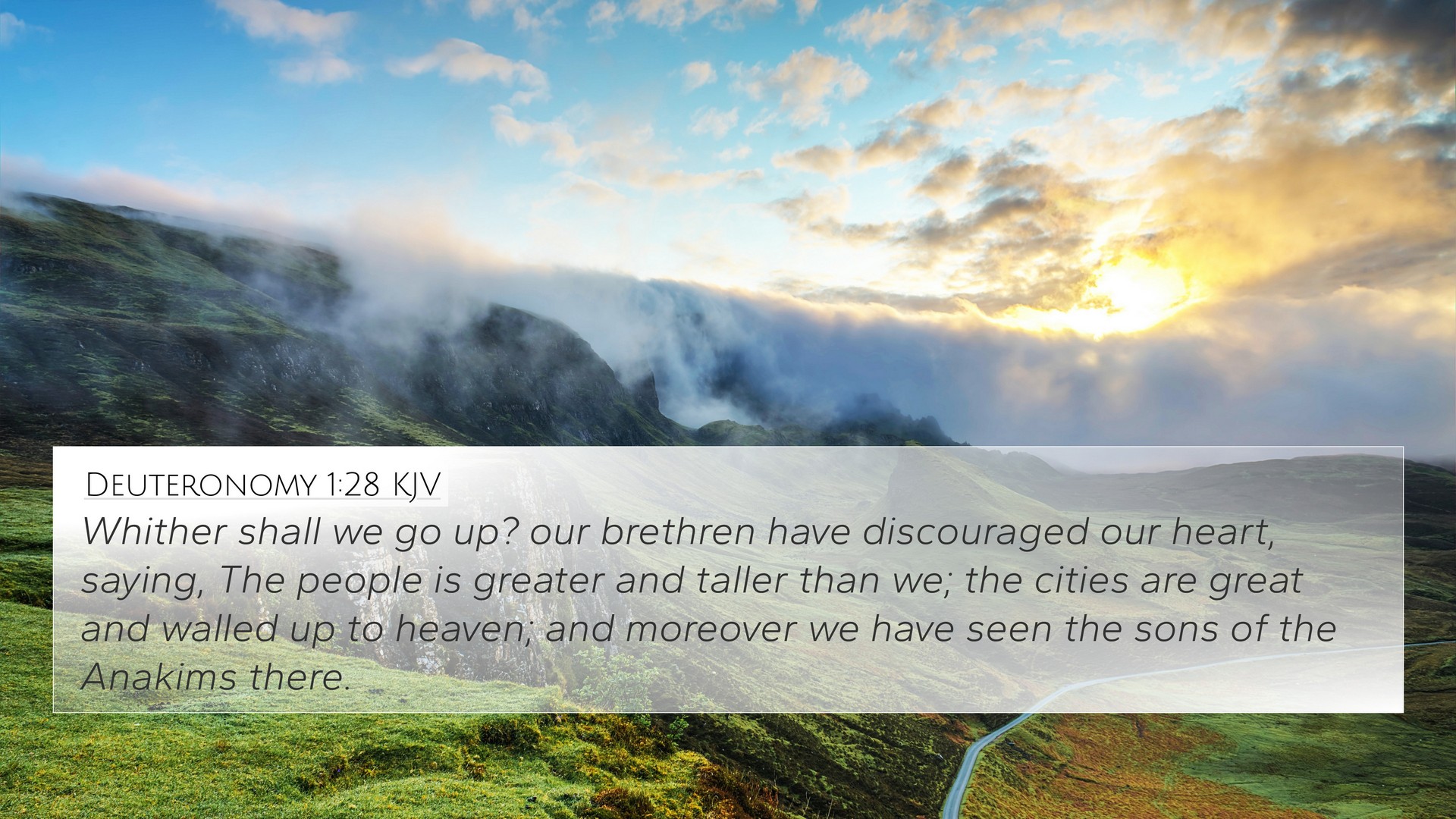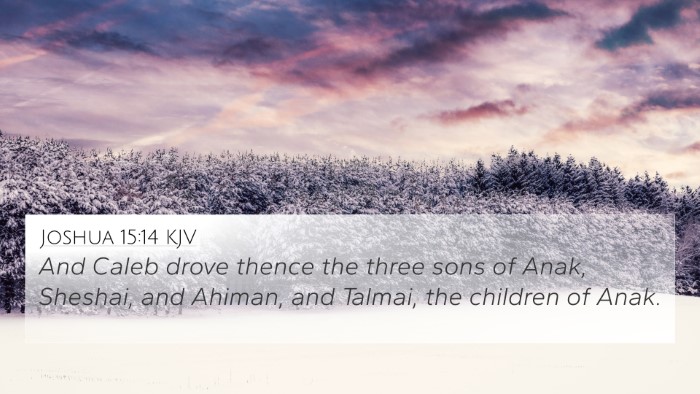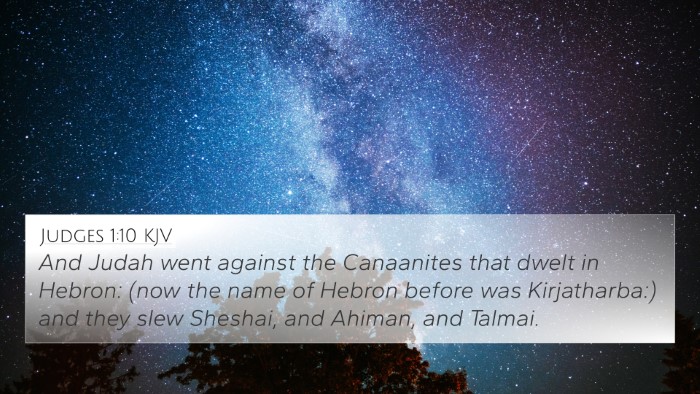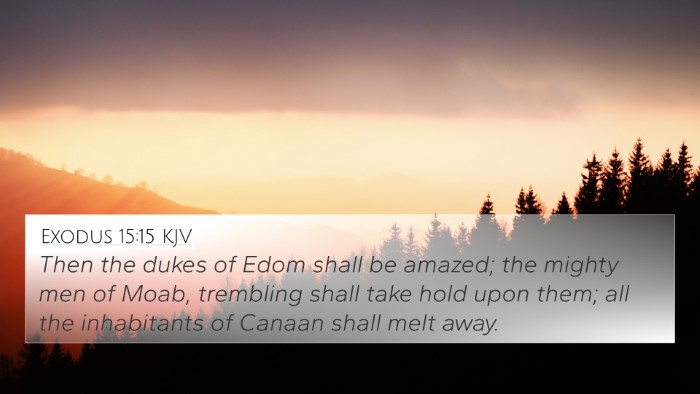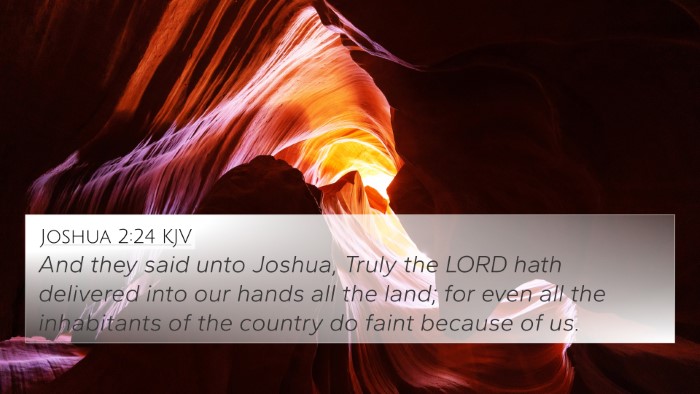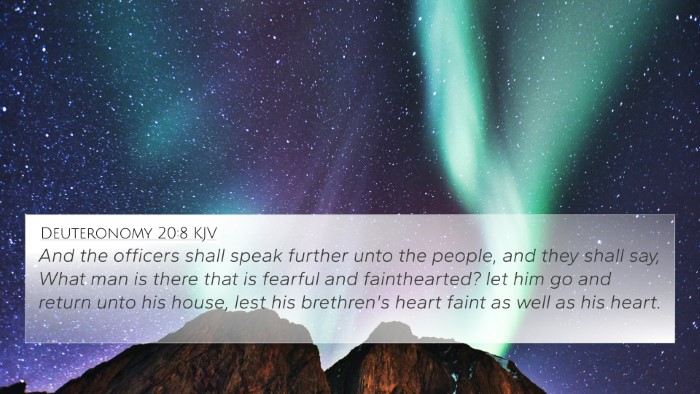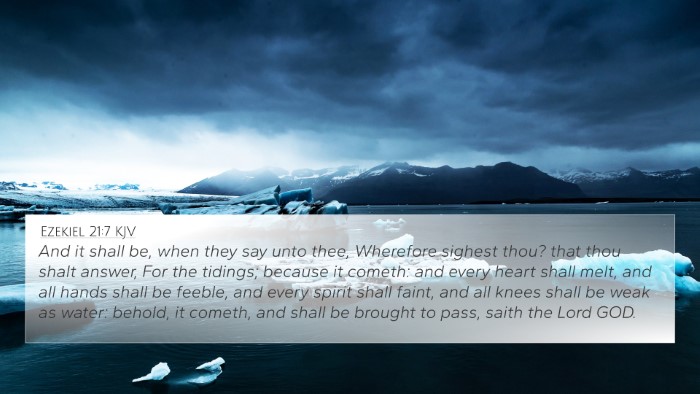Understanding Deuteronomy 1:28
Verse Reference: Deuteronomy 1:28 - "Whither shall we go up? Our brethren have discouraged our hearts, saying, The people are greater and taller than we; the cities are great and walled up to heaven; and moreover we have seen the sons of the giants there."
Verse Summary
This verse captures the moment when the Israelites, on the brink of entering the Promised Land, express their fears about the daunting challenges that lie ahead. The report of the spies has instilled doubt among the people, reflecting their lack of faith in God’s promises.
Commentary Insights
The following insights have been compiled from notable public domain commentaries:
-
Matthew Henry's Commentary:
Henry emphasizes the lack of faith exhibited by the Israelites. Their brothers' negative report about the formidable people and fortified cities bred fear and led them to doubt God’s deliverance. Such discouragement is a common theme when facing overwhelming challenges, illustrating the importance of trust in divine support.
-
Albert Barnes' Notes:
Barnes focuses on the rhetorical question posed by the Israelites: “Whither shall we go up?” This signifies their confusion and fear about proceeding, highlighting a critical moment where faith in God should have led them forward. Barnes notes how reliance on external assessments rather than divine promises can lead to despair.
-
Adam Clarke's Commentary:
Clarke discusses the mention of “sons of the giants,” referencing their fears of encountering formidable foes. He explains how this fear was rooted not in a correct understanding of their own identity as God’s chosen people but in a dire assessment of their enemies. Clarke emphasizes that such feelings can lead to spiritual paralysis if not counteracted by faith.
Thematic Connections and Cross-References
Deuteronomy 1:28 has numerous thematic connections that highlight the struggles of faith, fears of people, and God's promises. Here are some biblical cross-references that relate to Deuteronomy 1:28:
- Numbers 13:31-33: The spies' report that made the people of Israel fear; affirming the challenges ahead.
- Joshua 14:8: Caleb's faith amidst the broader despair reflects a different spirit, showing a challenge to the discouragement.
- Isaiah 41:10: God encouraging His people, stating He is with them despite daunting challenges.
- Hebrews 3:19: Listing the Israelites' disbelief in God’s promises as a warning for believers today.
- Psalms 118:6: Affirmation of trust in the Lord, making it clear that what men fear can be overcome by faith.
- Romans 8:31: “If God is for us, who can be against us?” This verse reassures believers against overwhelming odds.
- Philippians 4:13: The encouragement that through Christ, one can face all trials, resonating with overcoming fears.
Connecting Themes in Scripture
The narrative of Deuteronomy 1:28 is part of a larger dialogue within scripture about faith, fear, and divine assurance. These connections serve as tools for Bible cross-referencing, illustrating the significance of inter-Biblical dialogues. Here are some thematic connections drawn from related verses:
- Fear vs. Faith: This is a recurring theme in scriptures. The act of fearing greater 'giants'—whether they be literal or metaphorical—challenges believers to maintain faith amidst adversity.
- Human Limitations vs. Divine Strength: Each verse that reflects disbelief or doubt often has a counterpart showing God’s might, reinforcing the idea that God empowers His people.
- Encouragement to Trust: Many verses like Isaiah 41:10 resonate with God urging believers to trust Him regardless of circumstances.
- God’s Promises: The continuous reminder that God’s words are powerful and true stands firm through various books, showcasing His faithfulness.
Practical Applications
Understanding Deuteronomy 1:28 provides insightful lessons for believers today. Here are recommendations for applying these teachings to contemporary faith practice:
- Building Faith: Reflect on personal fears and compare them with God’s promises. Regular prayer can help ground these reflections.
- Encouraging Others: Be intentional in providing support and faith-filled insights to those who may feel overwhelmed by their challenges.
- Utilizing Cross-References: Employing tools for Bible cross-referencing can illuminate how various scriptures work in harmony to teach about God’s faithfulness.
- Focus on God’s Capability: Regularly meditate on verses emphasizing God’s omnipotence to combat fears arising from daunting situations.
Conclusion
Deuteronomy 1:28 serves as a reminder of the struggles believers confront when faced with daunting tasks or fears. By understanding the historical context, reflecting upon commentary insights, and linking the verse with others through scriptural cross-referencing, one can find deep encouragement and assurance in God’s promises. Let this scripture inspire confidence as believers navigate their own paths, trusting that with God, any giants can be faced and conquered.
